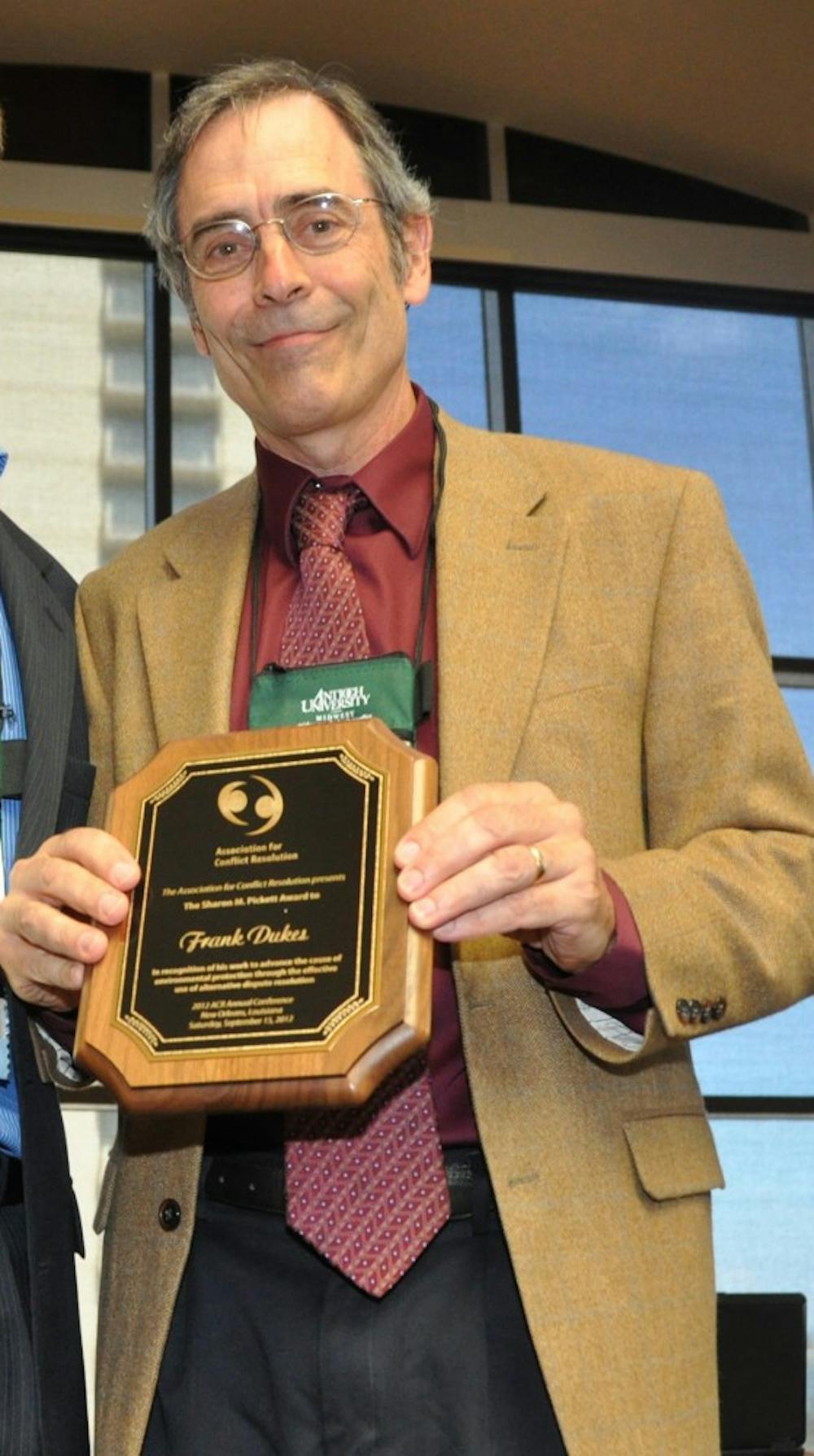The Response Working Group of the President’s Ad Hoc Group on University Climate and Culture held a town hall-style meeting Tueday in which students, faculty and other University community members discussed ideas about how to prevent sexual violence on Grounds.
The Response Working Group, which is one of three – including Prevention and Culture – was established in January 2015.
Members of the working groups were present at each table discussion, along with two moderators who were either members of the administration or students from Sustained Dialogue.
Associate Dean of Students Laurie Casteen delivered a presentation on current university responses to cases of sexual assault.
Casteen began by recognizing the various groups affected by sexual assault within the Univeristy community.
“Sexual assault is not a heteronormative problem,” Casteen said. “It occurs within the LGBTQ community and affects men as well, although the majority of cases involve women.”
Casteen outlined the current approaches to responding to sexual assault.
“Our approach is gentle yet persistent. They don’t have to tell us what they don’t want to tell us,” Casteen said. “We always encourage a police meeting and follow up a lot through email, texting or meeting with them in person.”
Much of the discussion centered around the autonomy of victim and the degree of privacy they can assured if law enforcement is involved. Castseen noted many victims are discouraged by the participation of the police.
“The vast majority do not report sexual assault to the police as most students don’t want to create risks within their social community. Many just want to forget about it. Many don’t want to drag their friends into it when witnesses are needed,” Casteen said. “Some students just want to maintain their privacy. We need to respect that.”
When table discussions convened, various questions put forth by the Working Group were discussed among the participants.
One such questions addressed whether matters of sexual orientation, race, ethnicity, nationality, religion affect the support and response actions taken by the groups involved.
Tim Tolson, Security and Policy analyst and moderator of the discussion noted the sensitive situations when dealing with these issues. He emphasized the importance of giving the victim the opportunity to confide in someone who they feel understands them and their background.
“In stress situations, you need to feel like you’re identifying with someone who will be supporting you,” Tolson said.
The discussion then moved to what could be done to increase reporting while preserving survivor autonomy. Sherri Moore, lecturer and general faculty at McIntire, emphasized a need for a private and safe space.
Moore developed this idea into a more practical setting, suggesting that there should be an add-on to the University app which would allow students to view the various steps that could be taken and what resources and support groups would be available to them.
“[There should be a] safe haven where a group of people who have reported can share their experiences,” Moore said.
To better response rates, Jamie Leonard, a participant in a table discussion and an employee in the Department of Student Health, suggested the individuals who are available to assist students should be found through a comprehensive process which ensures their experience in matters of sexual assault.
“[We need to] look at the make-up of the sexual misconduct board,” said Leonard. “Many victims are disappointed in the system and that may have to do with the resources available to them and the experience of the people on the Board.”
One of the most challenging issues to address is aiding students who have experienced sexual assault before coming to the University.
Most participants agreed this is when using the faculty as resources could be highly beneficial. For example, members of the faculty could be required to address the issue in their classes at the beginning of every semester and to encourage students to approach them if they need someone to talk to.
Trail emphasized the timing of when faculty would address this issue was important – so as to not interfere with academics – among many of the caveats which may come when involving professors.
“Timing is a big concern. Faculty are highly resistant – as there is an autonomy culture among the faculty – to any sort of further work or requirement,” Trail said.
However – as Trail also pointed out – some members of the faculty, especially those in spheres covering math and science are not comfortable counselling students who have been affected by sexual assault. Furthermore, many faculty members may display sexist tendencies themselves and are therefore unfit for handling such an issue.
While all the participants agreed many great ideas were put forth during discussion, they said the system could not be properly improved from only a bottom-up level. There are certain policies the University must adhere to under the federal mandate Title IX which makes developing the system in a way unique to the University problematic.
Since the implementation of Title IX, the University must require all employers to report to the school once they have learned of a sexual misconduct exempting counsellors, counsellors at the Women’s Center, and medical employees. This policy substantially affects whether victims are willing to report on a sexual offense.
Casteen addressed this issue – widely viewed within and amongst universities as highly controversial – in her opening speech.
“It is important that they know who they can report to and the ramifications of that,” Casteen said.
The groups will meet throughout the semester and report back to the President’s Ad Hoc Group on University Climate and Culture in the Spring.
Correction: a previous version of this article incorrectly quoted Associate Dean of Students Laurie Casteen as saying sexual assault is a "heterogeneous" problem and using the phrase "homosexual community." When speaking to the working group, Casteen used the phrases "heteronormative" and "LGBTQ community," respectively.







